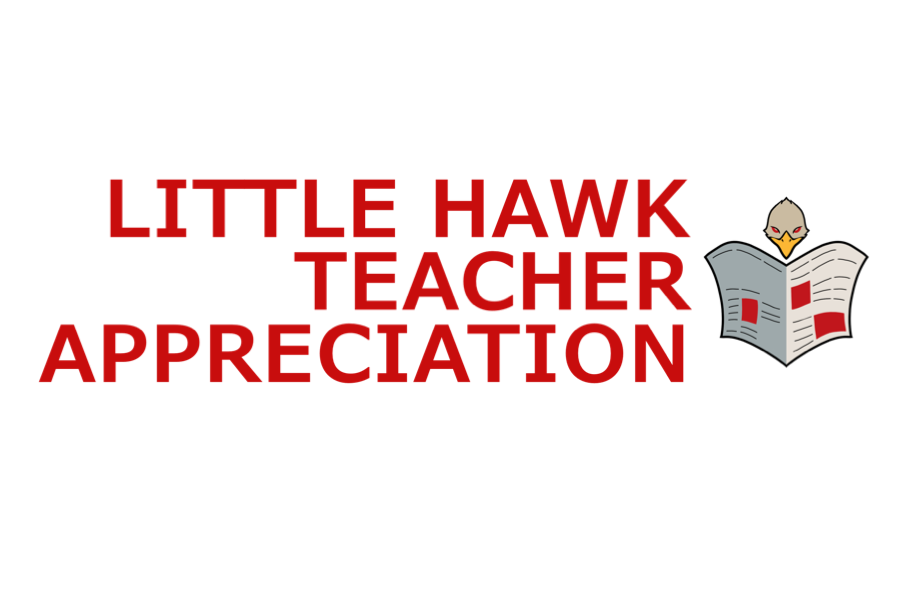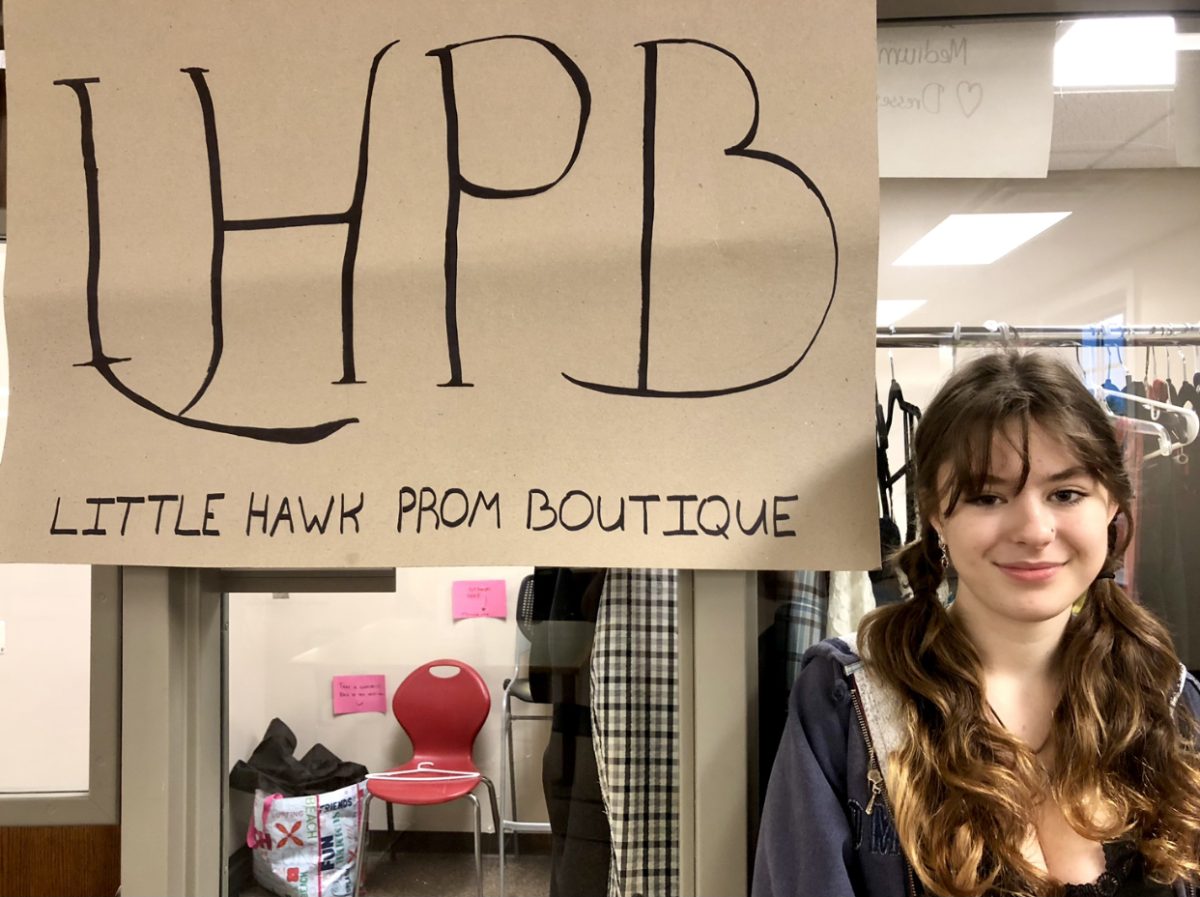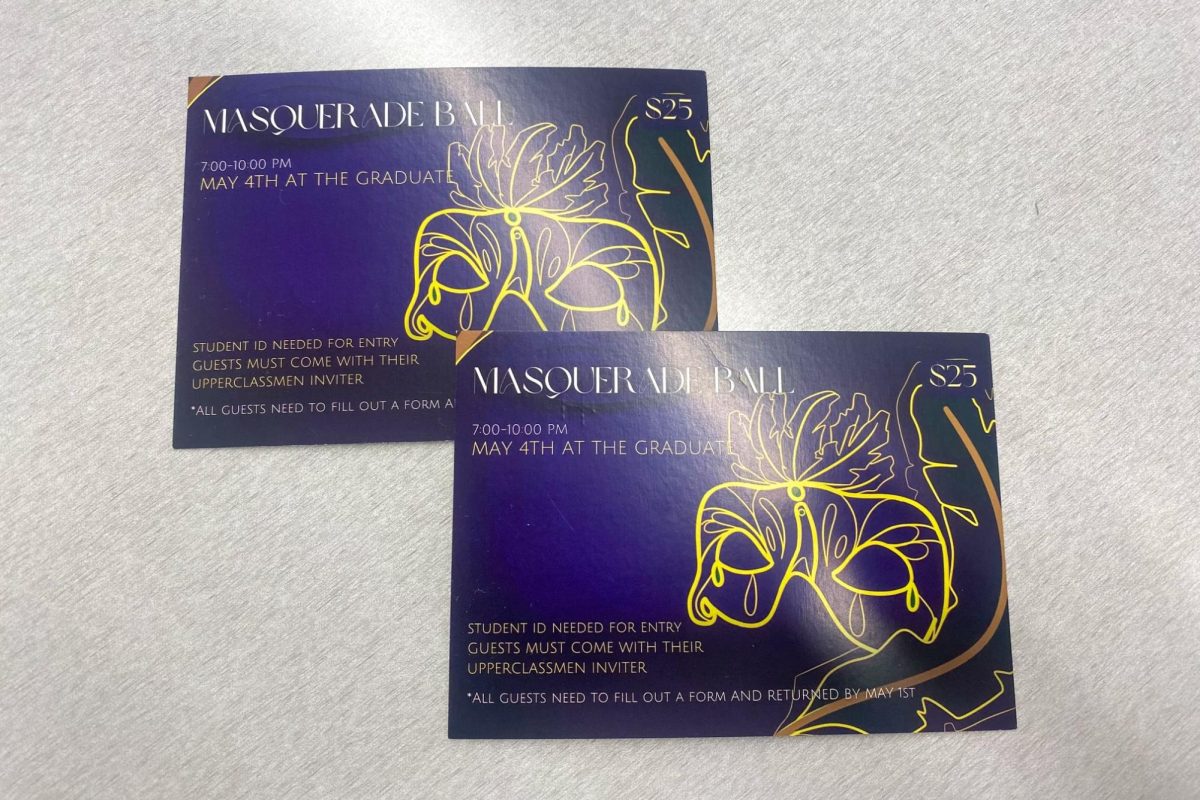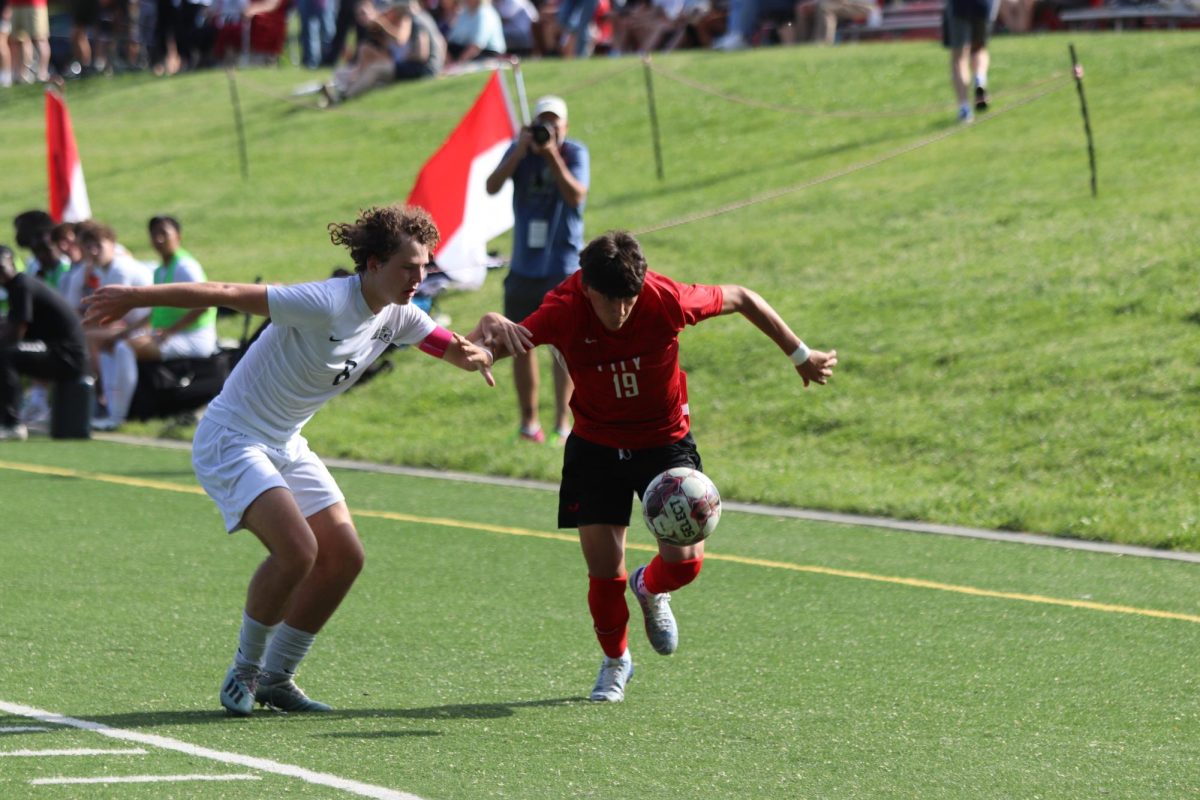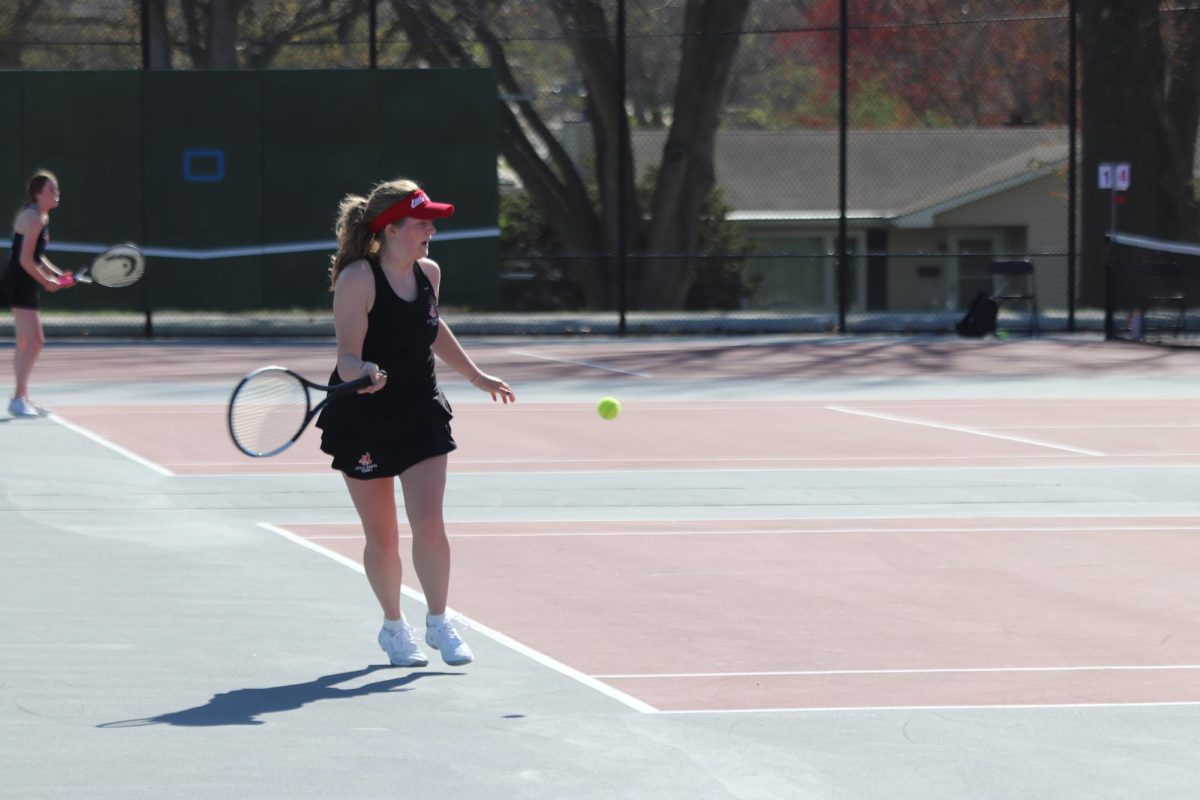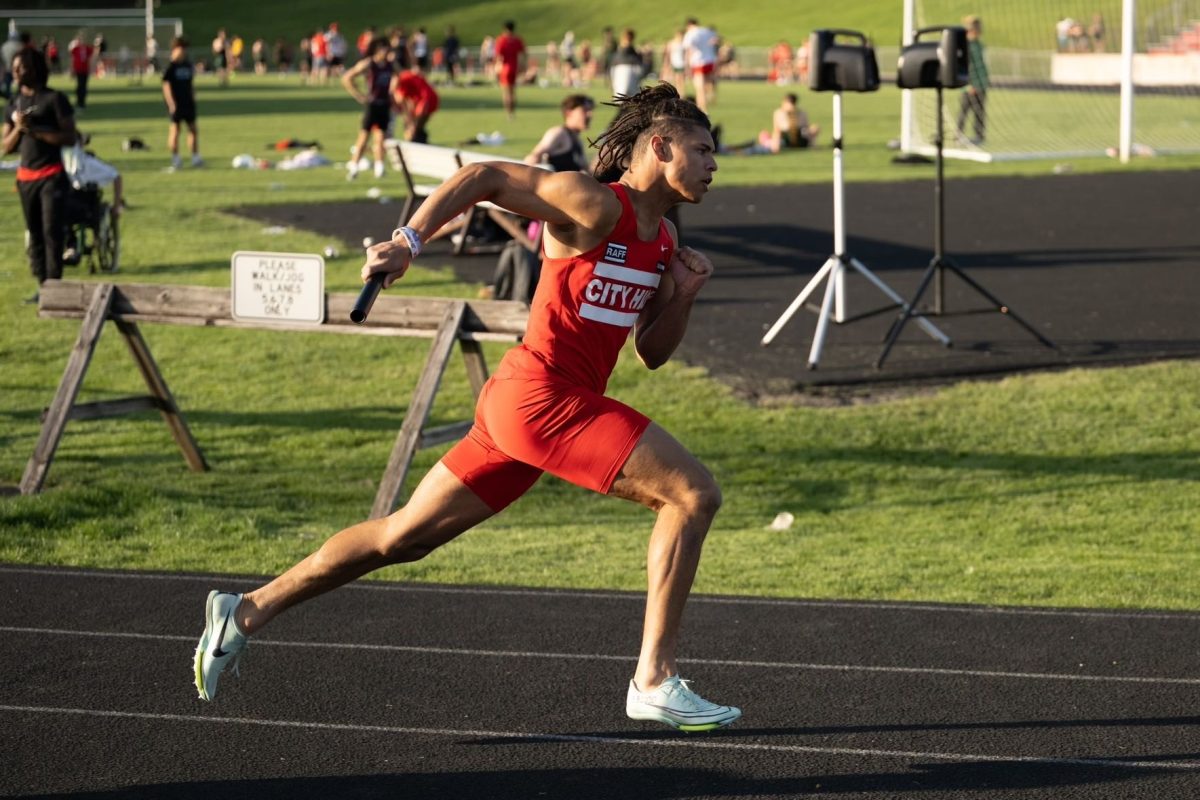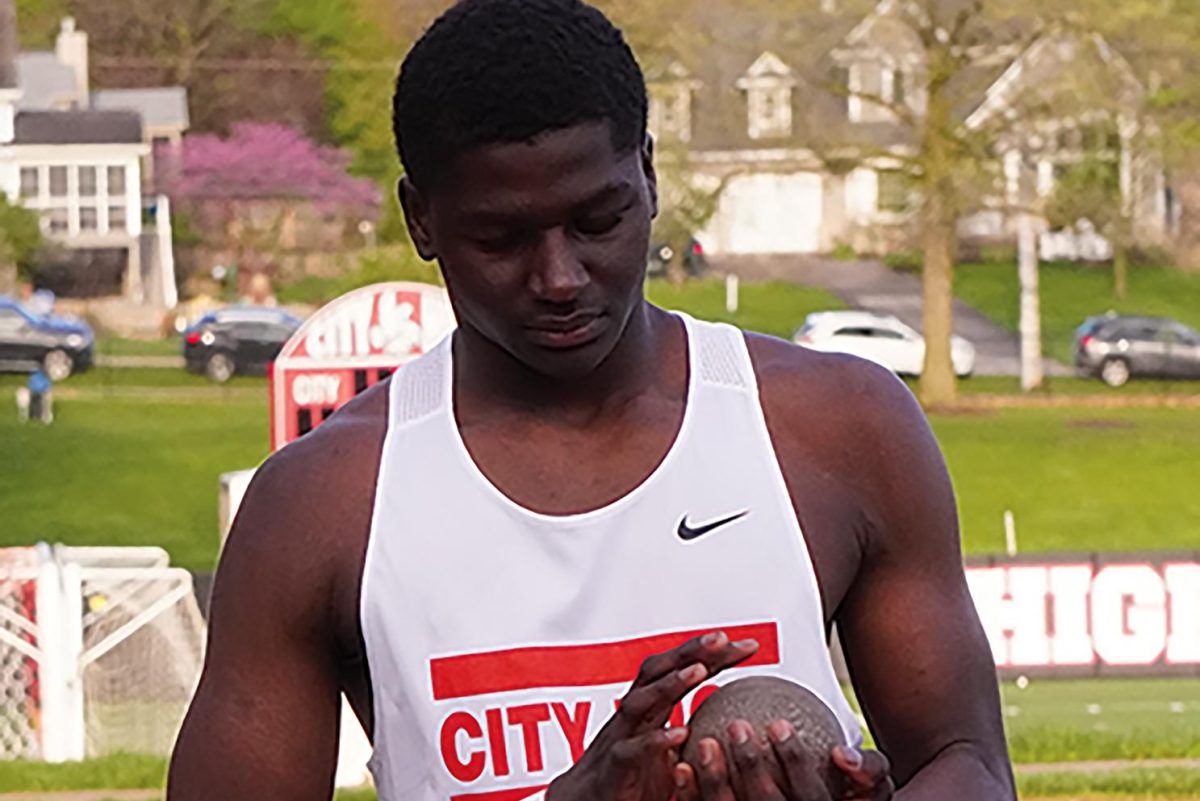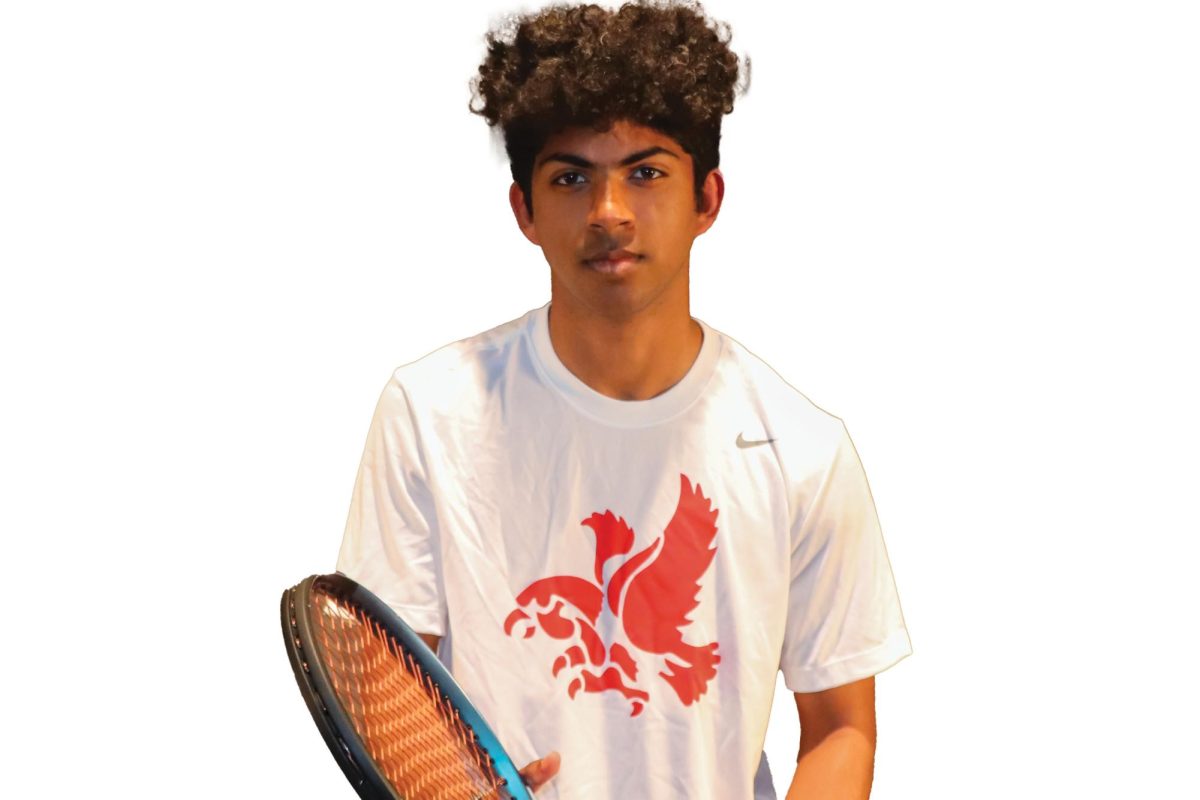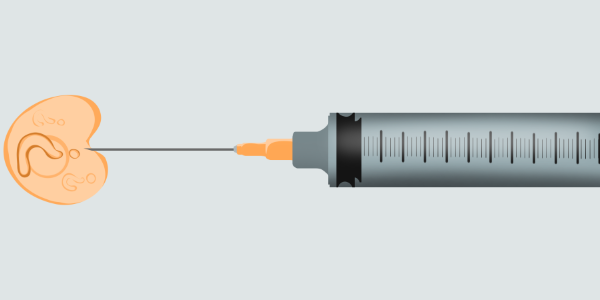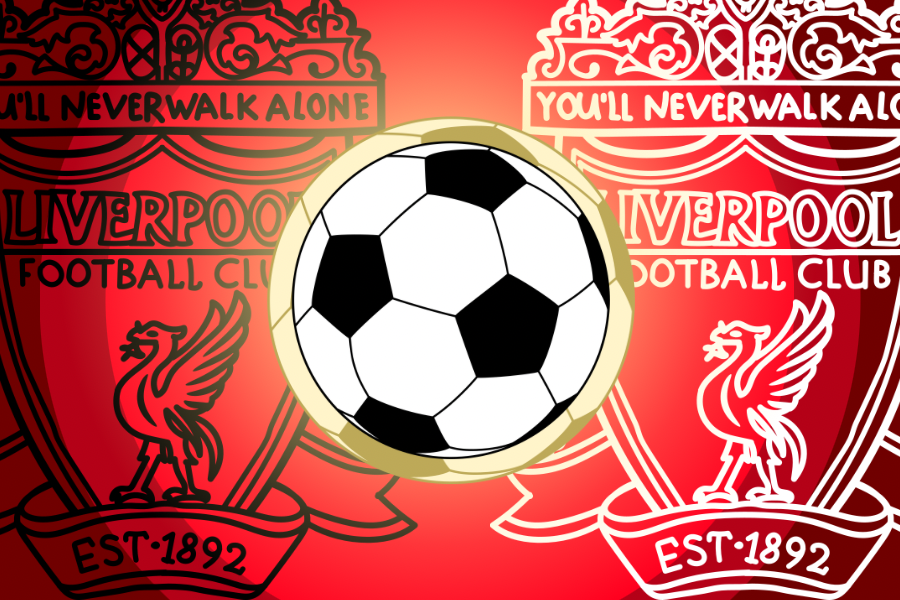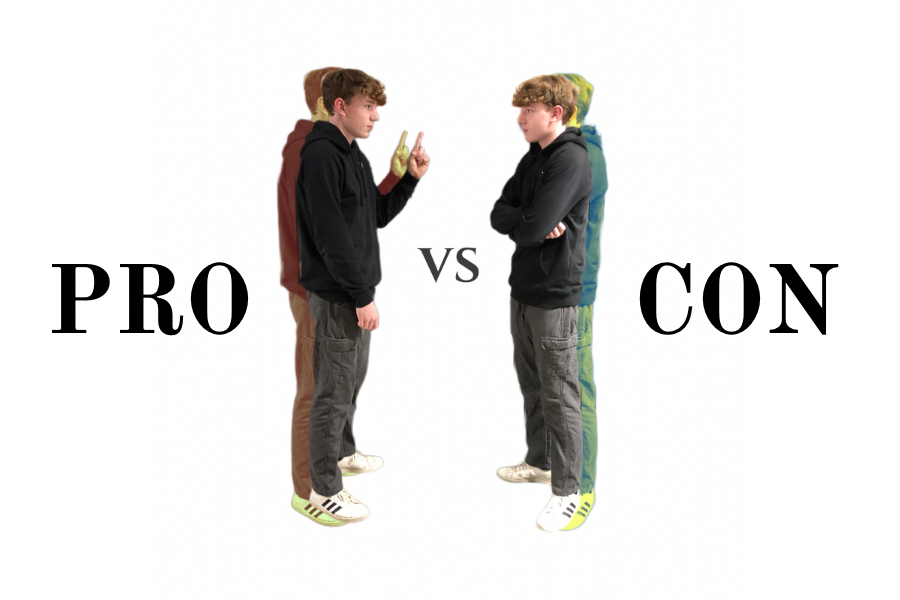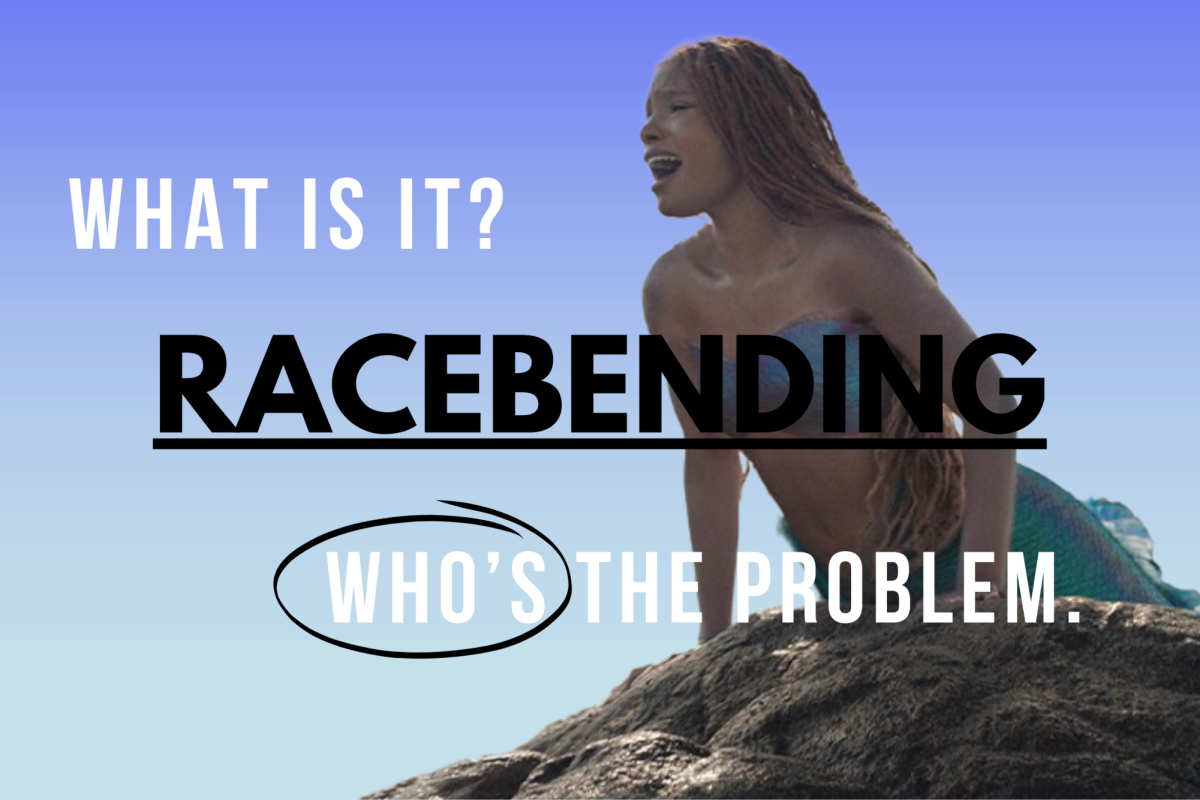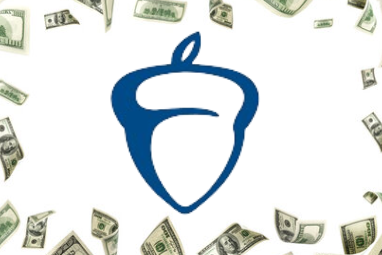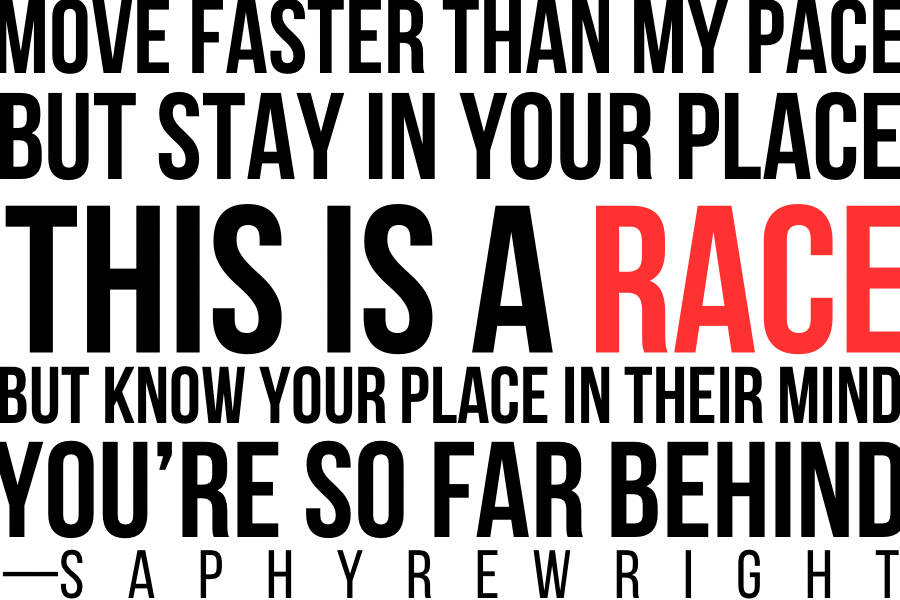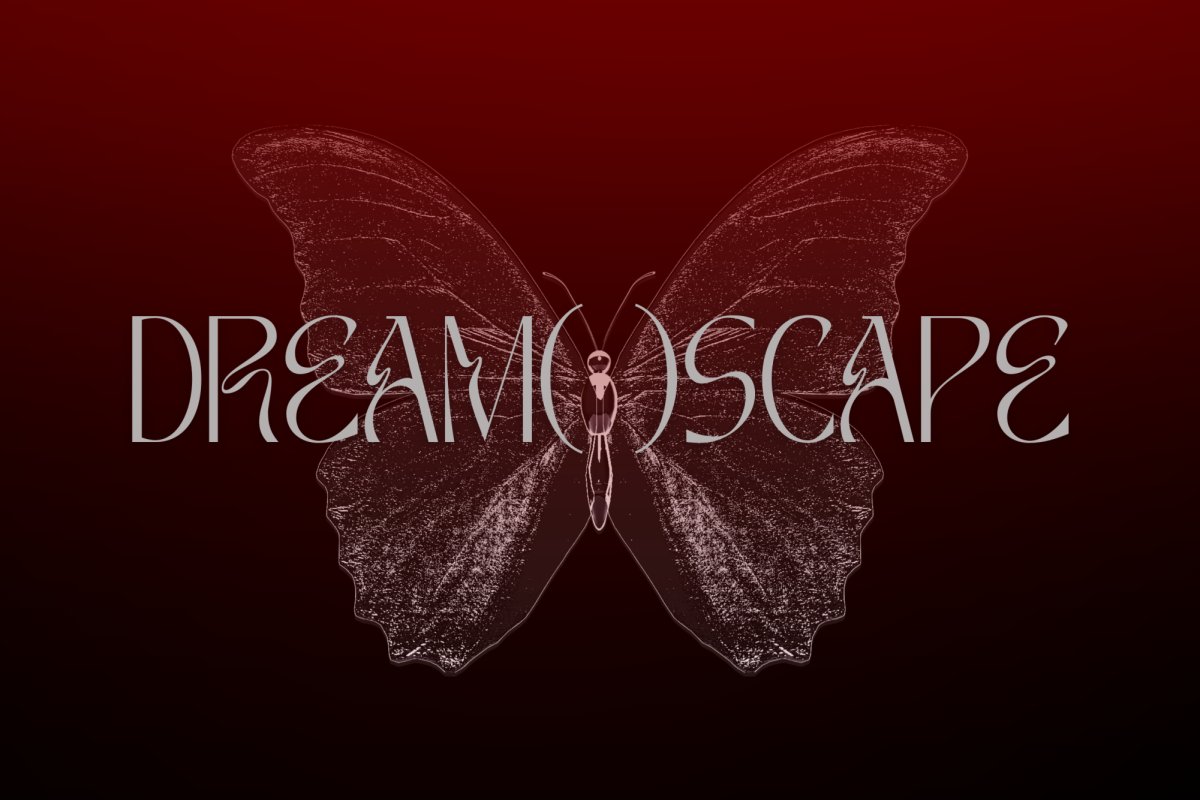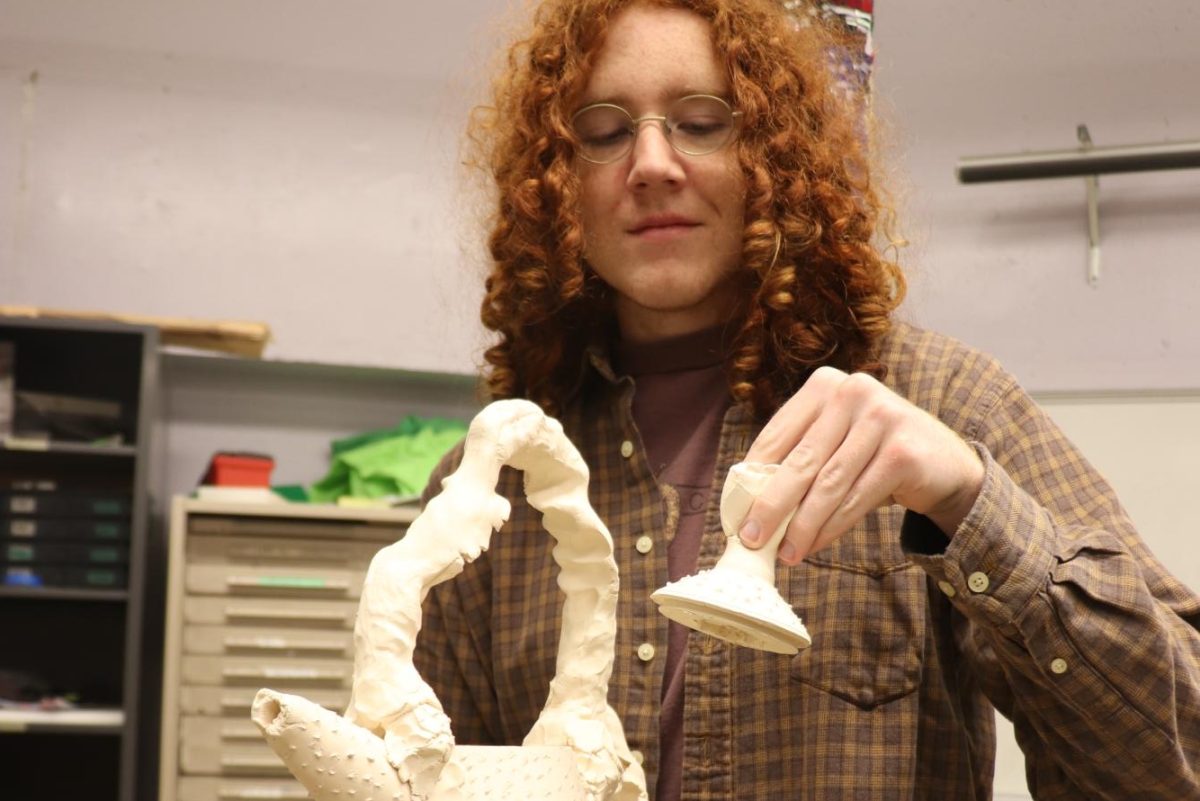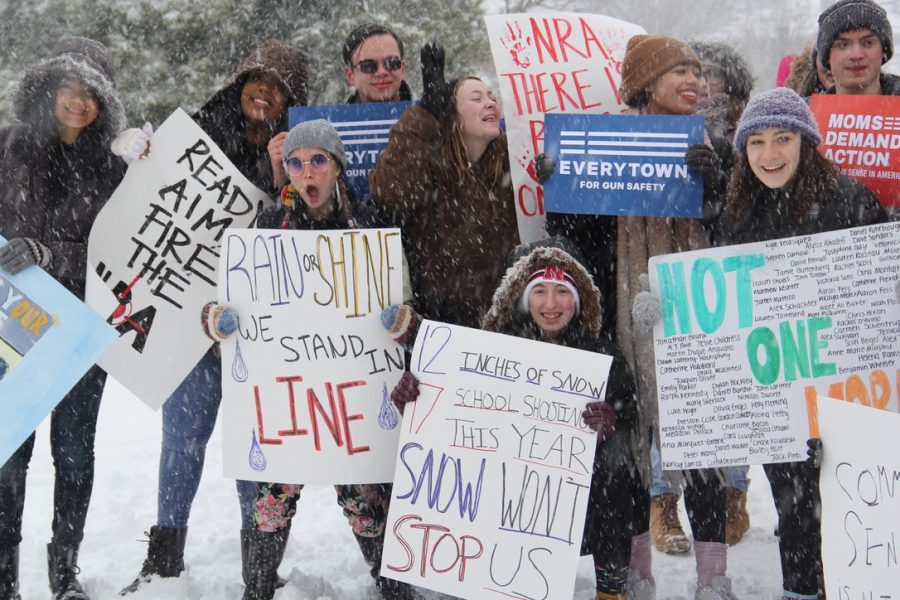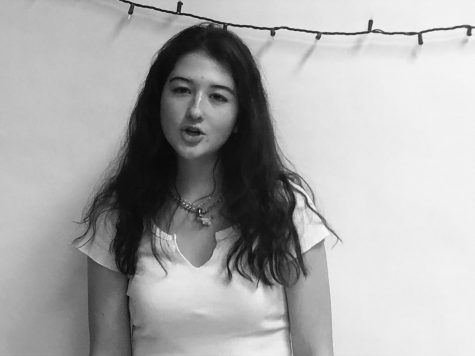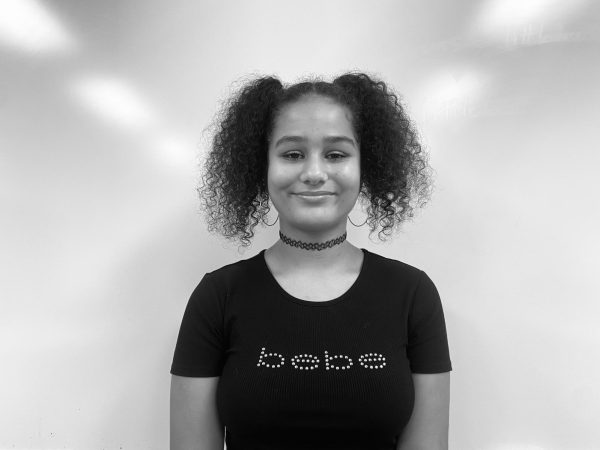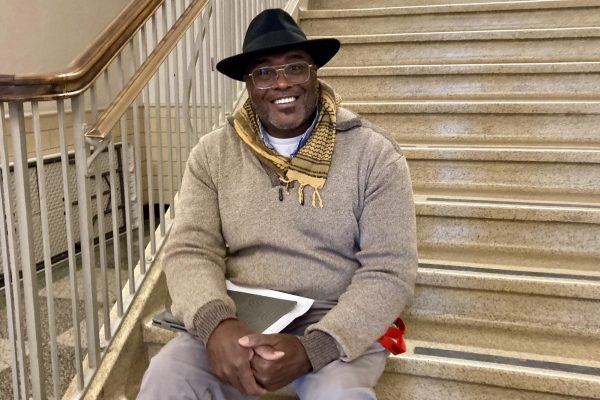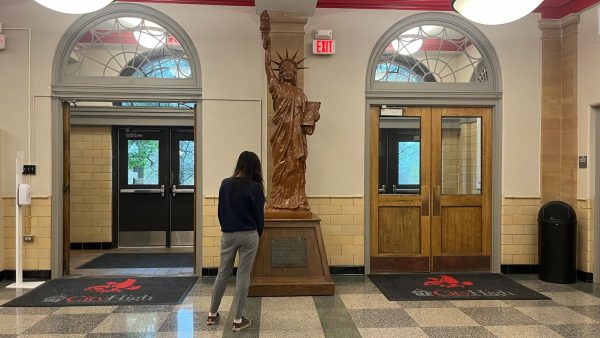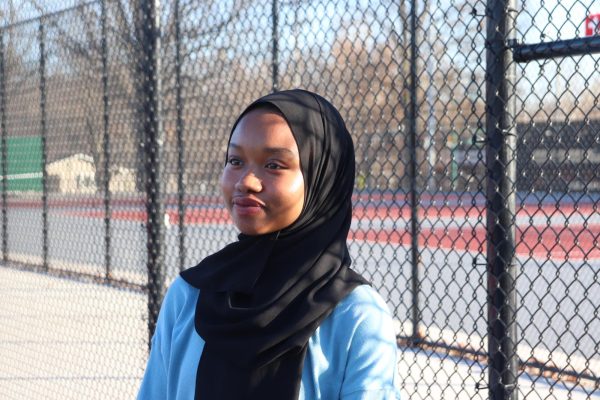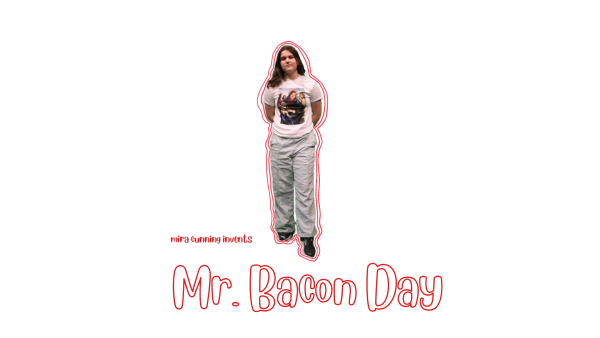Political Profile: Esti Brady’s Time in the Campaigns
Esti Brady (third from the left) protesting with Students Against School Shootings at a March for our Lives rally.
February 3, 2020
Turning 18 usually marks the beginning of most teenagers jumping into politics. For Esti Brady ’20, being 18 means that after years of working tirelessly on political campaigns, she will finally get the opportunity to make a concrete and physical contribution by checking a ballot in the 2020 election.
“For the 2020 election I think the first priority for any Democrat is to get Trump out of office,” Brady said. “Whoever the nominee becomes, I will support in whatever way I can.”
Her passion however, has been with Bernie Sanders since 2016.
“Bernie has been advocating for the same ideas his whole life and those ideas have only gained popularity and become less radical and more mainstream because they’re the right thing to advocate for,” Brady said. “Those ideas wouldn’t have picked up the steam they have between the 2016 and 2020 election if they weren’t the right ideas.”
Brady volunteered for Bernie’s campaign during both the current and 2016 election cycles and is hoping to continue supporting him and the ideas they both believe in in the future. Her love for politics, however, didn’t start with presidential campaigns.
Growing up in a liberal household, she was always aware of social justice, but it wasn’t until middle school that she realized the full extent of racism and social issues that existed only as far-off concepts in her day-to-day life.
“My elementary school was Lincoln Elementary,” Brady said. “When I went to it it was very small, affluent, white, and homogeneous. I would hear about issues like social and racial justice, but I didn’t see it in my life.”
The transition from elementary school to North West Junior High opened her eyes. The blending of multiple elementary schools into one junior high caused Brady’s peer group to suddenly became much more diverse, bringing visibility to the injustices her non-white classmates face.
“I realized, ‘Oh, wow, people in my class are treated differently than me because I’m white and they’re not.’ Boom, racism, there. I saw it for the first time,” Brady said.
Her first act to combat this injustice with the limited resources she had was in eighth grade. She and a small group of other students collected 94 note cards anonymously filled out by students of color at North West documenting their experiences with discrimination and then presented them to the school board. While no concrete change was made from that project specifically, SAHD (Students Against Hate and Discrimination) was created the next year. SAHD is a district wide group dedicated to ensuring that every student has an equal chance of success and that diversity of all kinds is celebrated within our schools.
“SAHD and [presenting the notecards] weren’t connected, but they were for the same general cause,” Brady said. “I was putting my energy towards the same thing, just in a different group.”
This kicked off an extensive career for Brady fighting for countless causes she believes in. At City High she got involved with several clubs and organizations revolving around activism. Through these groups, Brady heckled legislators about gun laws with Students Against School Shootings, participated in climate strikes every Friday to fight for a better climate action plan, and volunteered for numerous other causes.
“The dream for me is to be able to do social justice work and commit as much of my life to that as possible,” Brady said. “Ideally, I would like it to be my career path, but I’m not sure specifically what that looks like yet.”
Brady is looking into career paths involving law school and is interested in becoming a public defender or fighting injustice working at the ACLU (American Civil Liberties Union). Brady is certain that whatever her future holds, helping people and doing as much as she can to make change to corrupt and broken systems is a priority.
“I don’t understand how people don’t care,” Brady said. “When you see something hurting, it just makes sense to care. I think we should be asking the people who don’t go to help how it is that they are able to go through life like that.”


